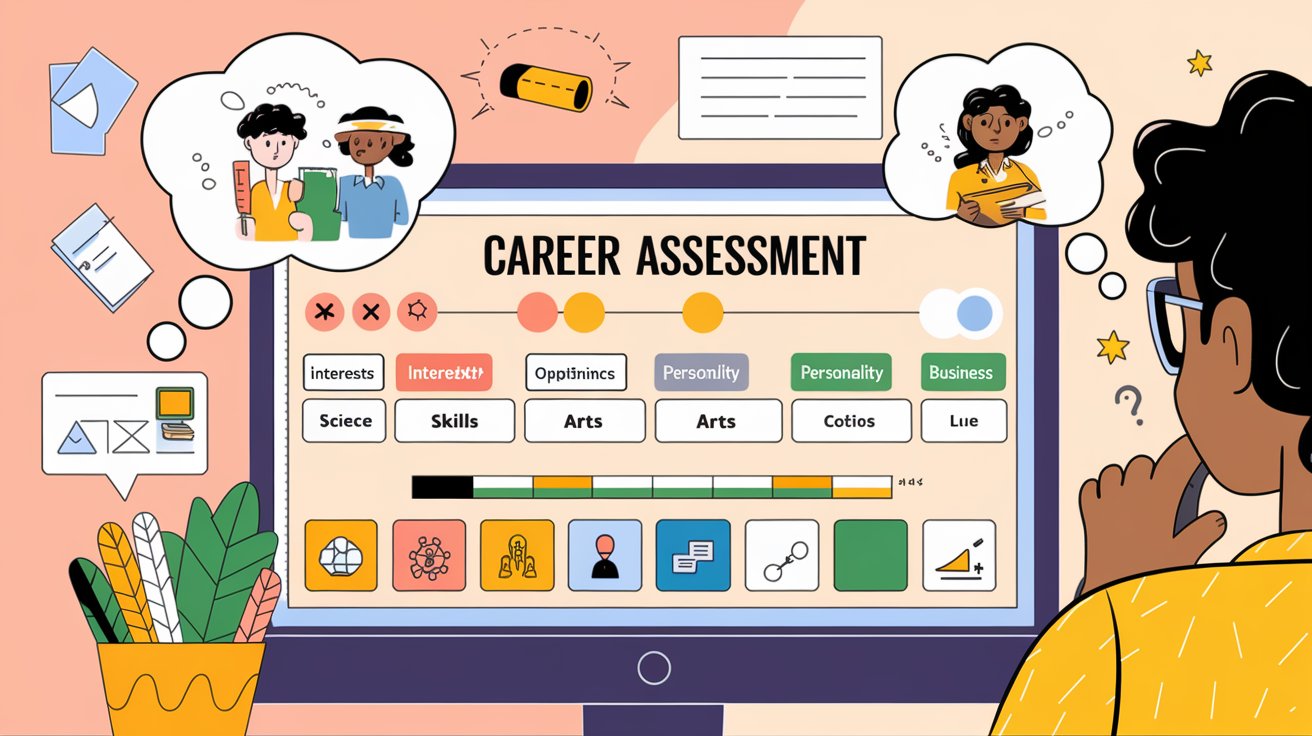Why Psychometric Tests Matter for Your Dream Career
Why Psychometric Tests Matter for Your Dream Career
Choosing a career is one of the most important decisions you’ll ever make. It’s a choice that will shape your future, impact your happiness, and define your life. But how do you know which career is the right one for you? This is where psychometric tests come in.
Let’s explore why these tests are so important and how they can help you find a career that matches your interests and abilities.
What Are Psychometric Tests?
Psychometric tests are scientific tools that measure your personality, interests, and abilities. These tests help you understand more about yourself, such as what you enjoy doing, what you’re good at, and what type of work environment suits you best. There are two main types of psychometric tests:
1. Aptitude Tests: These assess your skills and abilities in math, language, problem-solving, and logical thinking.
2. Personality Tests: These evaluate your character traits, such as introverted or extroverted, detail-oriented or big-picture thinking, and how you handle stress.
Why Psychometric Tests Are Important
Choosing a career can be overwhelming. With so many options, it’s easy to feel lost. Psychometric tests simplify this process by providing a clear picture of your strengths, interests, and personality traits. Here’s why they’re important:
1. Self-Awareness: Psychometric tests help you understand yourself better. Knowing your strengths and weaknesses allows you to make informed career choices.
2. Match Your Interests: These tests identify what you enjoy doing, helping you select a career that aligns with your passions.
3. Career Fit: By matching your personality and skills with potential careers, psychometric tests increase the chances of finding a job that you’ll excel in and enjoy.
4. Reduce Career Missteps: Choosing the wrong career can lead to frustration and disappointment. Psychometric tests help you avoid this by guiding you toward careers that fit your unique profile.
How Psychometric Tests Work
Psychometric tests usually take the form of multiple-choice questions. These questions are designed to reveal your preferences and abilities. For example, you might be asked how you handle certain situations, or which activities you enjoy the most. Based on your answers, the test generates a report that highlights your strengths and suggests potential career paths.
How Psychometric Tests Can Help You
1. Personalized Career Guidance
One of the biggest advantages of psychometric tests is the personalized guidance they provide. Instead of guessing which career might suit you, you get specific recommendations based on your unique profile.
2. Confidence in Your Choice
Choosing a career can be stressful, especially when you’re unsure if it’s the right fit. Psychometric tests give you confidence by backing your decision with scientific data.
3. Parental Involvement
For many students, parents play a significant role in career decisions. Psychometric tests provide parents with concrete data, helping them understand why a particular career is suitable for them. This can lead to more supportive and informed discussions at home.
Why Parents Should Consider Psychometric Tests for Their Children
As parents, you want the best for your child, including a fulfilling and successful career. Psychometric tests offer several benefits:
1. Objective Insights: These tests provide an unbiased assessment of your child’s strengths and interests.
2. Reduced Pressure: Psychometric tests can alleviate the pressure of choosing a career by narrowing down the options to those that truly fit your child.
3. Long-Term Success: By guiding your child toward a career that aligns with their abilities and passions, you’re setting them up for long-term success and satisfaction.
Conclusion
In a world full of career options, psychometric tests serve as a valuable tool for both students and parents. They offer a clearer understanding of who you are, what you’re good at, and which careers will bring you the most joy and success. If you’re feeling uncertain about your future career, consider taking a psychometric test. It might just be the first step toward discovering your dream career!
Frequently Asked Questions (FAQs)
Psychometric tests are standardized assessments designed to measure various psychological attributes, such as personality traits, cognitive abilities, interests, and aptitudes. These tests work by presenting a series of questions or tasks that assess how individuals think, behave, and respond in different situations. The results provide insights into an individual’s strengths, weaknesses, and potential career paths, helping them make informed decisions about their future.
Psychometric tests are important in career counselling because they offer objective and reliable data about an individual’s personality, skills, and preferences. This information helps career counsellors guide students or professionals in choosing career paths that align with their natural abilities and interests. By understanding their strengths and areas for development, individuals can make more informed decisions about education, career choices, and personal development.
Common types of psychometric tests used in career counselling include aptitude tests, personality assessments, and interest inventories. Aptitude tests measure cognitive abilities such as logical reasoning, and verbal and numerical skills. Personality assessments explore traits like introversion, extroversion, and emotional stability. Interest inventories help identify areas of passion or interest that could translate into satisfying career options. Together, these tests provide a comprehensive picture of an individual’s potential career paths.
Psychometric tests are generally accurate in assessing specific traits and abilities, but they are not absolute predictors of career success. The accuracy of these tests depends on the quality of the test, the honesty of the responses, and the interpretation of the results by a trained professional. While psychometric tests can provide valuable insights, they should be used as one part of a broader career planning process, combined with personal reflection, counselling, and real-world experiences.

